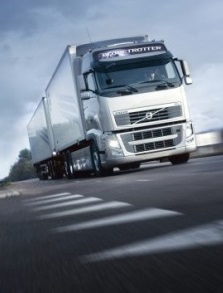Telemetrics taking hold
 The transport sector is preparing for its next technological step forwards.
The transport sector is preparing for its next technological step forwards.
Big players have commented on the shift to telematics technology, which some believe should become mandatory.
New revisions to the Heavy Vehicle National Law (HVNL) have come into effect, allowing one type of telematics technology - electronic work diaries (EWDs) – to be officially used to manage driver fatigue.
From 2017, transport companies will be able to submit electronic driver activity data already being collected by certified types of EWDs, to meet their NHVR compliance obligations.
But even so, the use of the technology is set to remain voluntary for now.
While that means regulators will accept compliance data submitted via traditional paper means, the authorities want to cross over entirely.
“Regulatory telematics, along with new and innovative technology solutions, provide a significant contribution to achieving and improving safety outcomes for all road users and the community more broadly,” NHVR executive director for productivity and safety Geoff Casey said recently.
But he says he realises moving to a mandatory regime “would require appropriate consultation and discussion with industry and regulatory service providers prior to any decision.”
The Australian Logistics Council (ALC) has advocated telematics for several years.
The ALC says an industry-wide upgrade would improve road safety and give more accurate driver and vehicle information for future road pricing needs.
There has been a lot of talk about road pricing changes, as the Federal Government seeks more funds for new infrastructure amid a downtown in mining royalties.
“With the proposed road pricing changes that will be made around the Heavy Vehicle National Law, it’s an ideal time to ensure that this issue [of mandatory telematics] is pushed forward,” ALC chief Michael Kilgariff told industry press IoT Hub.
“If we don’t do it when we’re making necessary changes to the law, then we can’t be sure when we’ll get the opportunity again to address this issue.”
He also responded to criticisms coming largely from smaller companies, who fear the information will be used for more than the stated purposes.
“The ALC has always argued that the operators own the data, and should only provide data to regulators if required to under a particular law,” Mr Kilgariff said.
“[Smaller operators may] feel that the data is going to be used by governments to monitor where they’re travelling.
“It’s true that the data can be called up by the government should they wish to obtain evidence for some offences, but I think the time has come and gone when cost can be used as an excuse to why this sort of information shouldn’t be routinely collected.
“Our view is that [telematics] ought to be something the entire industry embraces, not just those companies at the top end of industry.”








 Print
Print